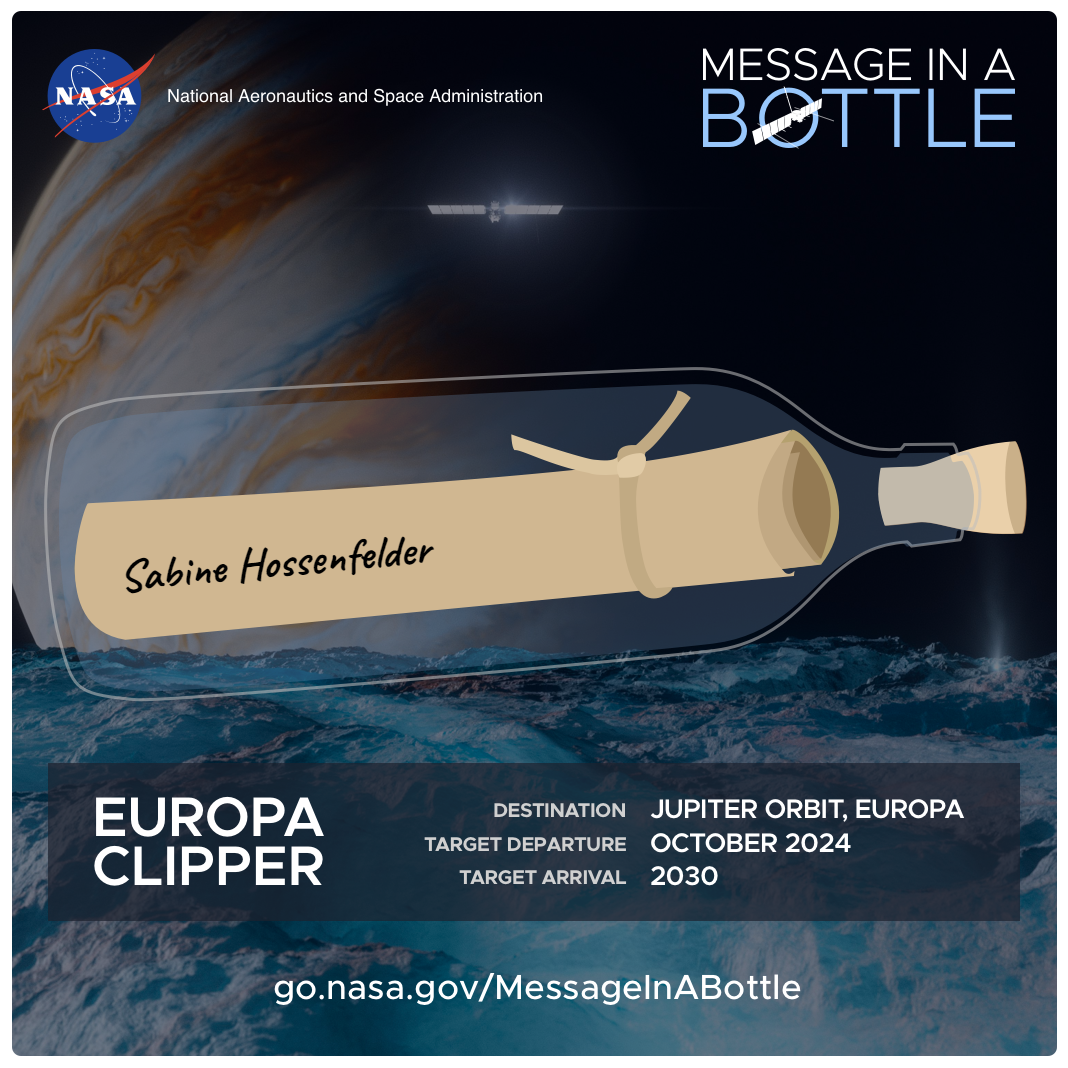Names That Fly to Jupiter, British Uranium, and Very Bright Lights (Patreon)
Content
Send Your Name in a Bottle to Jupiter

Remember those companies that would charge you $19.99 to name a star after someone, but then nobody would actually use the name? Here’s a somewhat more substantial idea: You can send your name (or your friends’) on a trip to orbit Jupiter on NASA’s Europa Clipper!
If you sign up, your name will launch from Earth this coming October 6 on a spacecraft powered by one of Elon Musk’s SpaceX Falcon Heavy rockets. It’s scheduled to arrive in Jupiter’s orbit, about 968 million km (601 million miles) from our planet's orbit, by April 11, 2030. As you can see in the image above, one of my friends has already signed my name up for the mission! If you would like your name to travel along with mine to Jupiter, you can sign up here.
Jupiter’s moon Europa is one of the most intriguing destinations in our solar system because it has salty warm oceans with more water than Earth under its icy crust. The “Europa Clipper” mission will make multiple flybys of the moon to investigate if its conditions are suitable for life. You can learn more about the Europa Clipper mission here and here.
UK Invests in High-Tech Nuclear Fuel to Push Putin Out of Global Energy Market
The U.K. Department for Energy Security has announced that the United Kingdom will become the first European country to launch a high-assay low-enriched uranium (HALEU) program with a landmark £300 million investment.
With 5-20% of Uranium 235, HALEU is not as highly enriched as the uranium used in nuclear weapons, but the Uranium 235 fraction is still considerably higher than that of the low-enriched uranium which is currently used in almost all commercial reactors (typically 3-5% U235). HALEU has a higher efficiency and better fuel burnup and can be used in advanced reactor designs, such as small modular reactors and molten salt reactors.
Up to now, Russia has been the only country to commercially produce HALEU. The U.K. government aims to change that and, at the same time, also wants to position the U.K. as a world leader in nuclear technology. The government plans that by 2050, 24 GigaWatts – ¼ of the U.K.’s current electrical power needs – will come from nuclear power.
Press release here.
Perovskite LEDs Shine Bright

Image: Perovskite light emitting diodes on sapphire substrate stimulated with current. (Credit: IMEC)
Engineers at Imec nanoelectronics have produced Light-Emitting Diodes (LEDs) that are 1,000 times brighter than the ones we currently use. They did it by using perovskite, a crystal mineral of calcium titanate well known for its optoelectronic capacity, affordability, and ability to efficiently transport charge. It is one of the prime candidates for more efficient solar cells. The engineers now found a way to make the material digest high currents and efficiently convert them into stimulated light emission.
